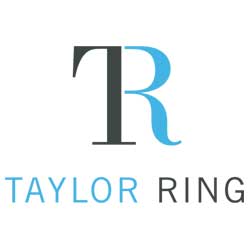What Are My Rights as a Transgender Employee?
 Although federal and state law prohibit workplace discrimination based on things like age, race, ethnicity, gender, and sexual orientation, millions of Americans still experience harassment or loss of employment simply due to who they are. This type of discrimination is illegal for protected classes, and it is crucial as a transgender or non-binary employee that you understand your rights under California law.
Although federal and state law prohibit workplace discrimination based on things like age, race, ethnicity, gender, and sexual orientation, millions of Americans still experience harassment or loss of employment simply due to who they are. This type of discrimination is illegal for protected classes, and it is crucial as a transgender or non-binary employee that you understand your rights under California law.
The National Center for Transgender Equality (NCTE) reports that “more than one in four transgender people have lost a job due to bias, and more than three-fourths have experienced some form of workplace discrimination.” Further, transgender people of color experience higher rates of workplace discrimination, including refusal to hire, on-the-job violence, privacy violations, and harassment. Many respondents reported changing jobs to avoid discrimination and harassment.
Transgender discrimination not specifically prohibited until 2020
A landmark 2020 U.S. Supreme Court decision (Bostock v. Clayton County, Georgia) expanded the definition of “sex” in the Civil Rights Act to prohibit discrimination against employees due to sexual orientation or gender identity. Wrote Justice Neil Gorsuch in the majority opinion:
It is impossible to discriminate against a person for being homosexual or transgender without discriminating against that individual based on sex. Consider, for example, an employer with two employees, both of whom are attracted to men. The two individuals are, to the employer’s mind, materially identical in all respects, except that one is a man and the other a woman. If the employer fires the male employee for no reason other than the fact he is attracted to men, the employer discriminates against him for traits or actions it tolerates in his female colleague.
The importance of this ruling is that it affirms employment discrimination laws protect individuals from discrimination. Therefore, an employer cannot defend their behavior by arguing that they treat, for example, all men and women the same. Explained the Court, if discrimination occurred to a specific individual, “It doesn’t matter if the employer treated women as a group the same when compared to men as a group.”
What are my rights at work?
As an LGBTQ+ person and employee, you have certain rights provided by federal law that make it illegal for your employer or workplace personnel to discriminate against you or harass you based on your gender identity. This also includes retaliation for reporting sexual harassment.
As a transgender employee, you have the right to:
- Be treated with respect and be free from sex-based harassment, which can include jokes about transgender people, intentional or repeated use of incorrect pronouns or “dead names,” and invasive questions about your sexuality
- Not be fired, or refused a job or promotion because you are transgender or gender non-conforming
- Reasonable and safe access to bathrooms and other facilities that match your gender identity
- Choose to be “out” and not be outed – you cannot be forced to disclose transgender status and cannot fired for coming out, and your employer cannot disclose your status without your consent
Here in California, you also have protections under The Gender Nondiscrimination Act of 2012.
Examples of transgender discrimination on the job
Although some discriminatory actions are obvious and overt, some may be more subtle. Many transgender advocacy organizations provide a list of examples of common actions that could constitute discrimination in the workplace. These include:
- Limiting your interactions with clients and customers because they might not be “comfortable” with your gender expression or identity
- Prohibiting you to dress in accordance with your gender identity, including work-issued uniforms and dress codes
- Denying you access to bathrooms or facilities that match your gender identity
- Requiring a transgender man to work as a woman (and vice-versa) in sex-segregated tasks and activities
- Outing you to co-workers without permission, which is a violation of HIPAA and other privacy laws
- Requiring you to present proof of gender, like a birth certificate or court document, before accepting your gender identity
- Exclusions in employee health insurance regarding gender transition treatments
If any of this has happened to you, we advise talking to an experienced employment discrimination attorney about your potential case.
What can I do if I’m facing discrimination at work because I am transgender?
Although it is always a good idea to have a lawyer on your side, your first step should be addressing the matter internally through your company’s formal complaint process. This helps establish your complaint and your employer’s resulting action, or inaction. Your employment discrimination attorney may also approach the company on your behalf, if necessary.
In most cases, you must file a complaint with the California Department of Fair Employment & Housing (DFEH), which is like the state version of the federal Equal Employment Opportunity Council (EEOC). Before filing a civil suit along with your attorney, you must first obtain a “Right to Sue” notice. Your attorney can provide you with more details and assistance on this process.
More resources
The NCTE provides a list of valuable resources for transgender and gender non-conforming employees:
- S. Equal Employment Opportunity Commission Brochure on LGBT Discrimination
- How to File a Charge with the EEOC
- Links to State and Local Human Rights Agencies
- Links to Legal Services Organizations
- How to file a complaint with the Office of Federal Contract Compliance Programs (OFFCP)
- OPM Guidance on the Employment of Transgender People in the Federal Workplace
- Pride at Work (LGBT @ AFL-CIO)
The Los Angeles employment discrimination attorneys at Taylor & Ring protect transgender employees on the job. If you believe you have experienced discrimination, retaliation, or other harassment due to your gender identity, contact us today. We want to help. To schedule a free consultation, call our office at 310-209-4100, or complete our contact form.

Serving clients throughout the Greater Los Angeles and Southern California area, we represent victims in a variety of civil litigation cases. If you or a loved one has been injured, turn to an experienced Los Angeles personal injury or sexual assault lawyer.
Find out more about Taylor & Ring.

